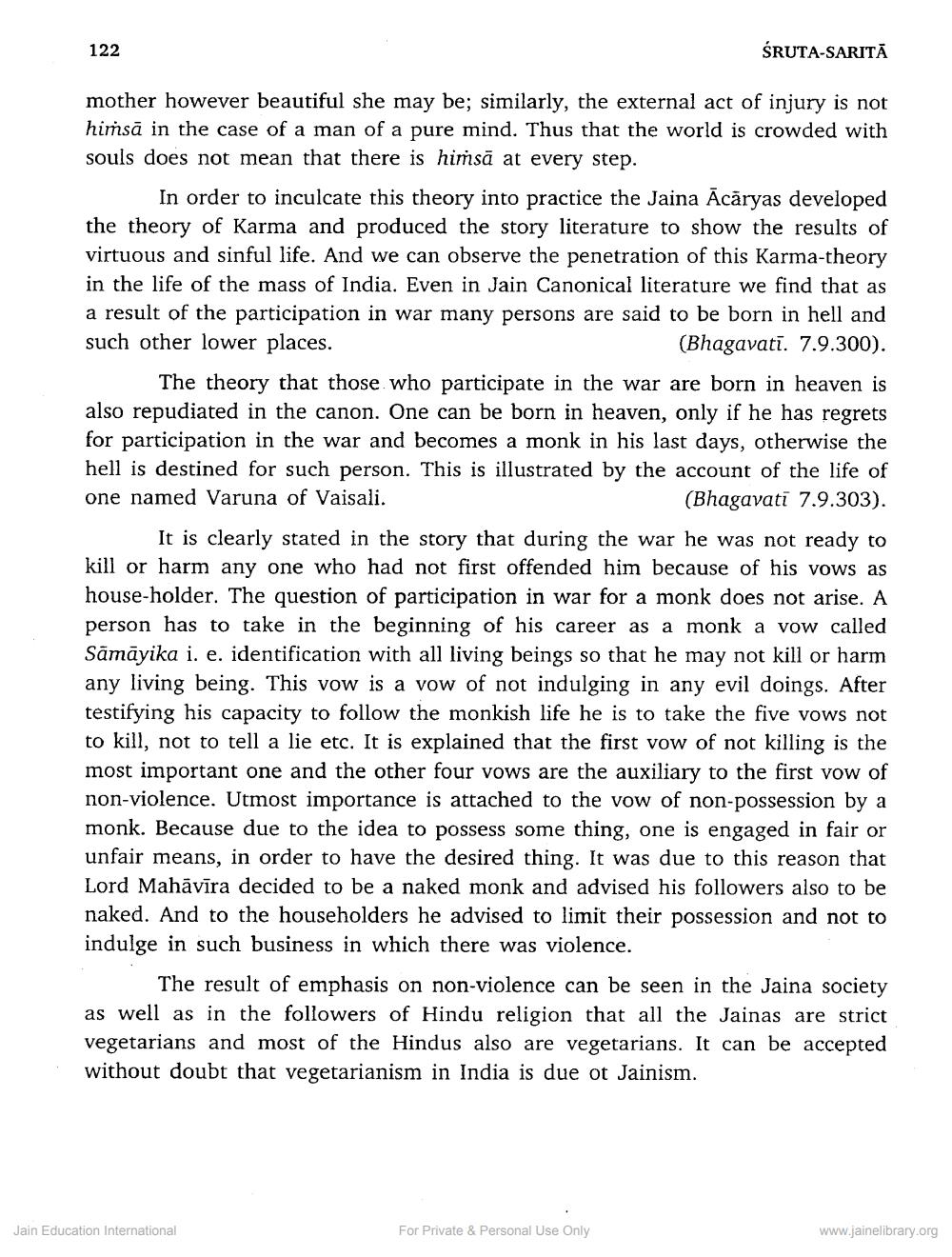________________
ŚRUTA-SARITĀ
mother however beautiful she may be; similarly, the external act of injury is not himsă in the case of a man of a pure mind. Thus that the world is crowded with souls does not mean that there is himsã at every step.
122
In order to inculcate this theory into practice the Jaina Acaryas developed the theory of Karma and produced the story literature to show the results of virtuous and sinful life. And we can observe the penetration of this Karma-theory in the life of the mass of India. Even in Jain Canonical literature we find that as a result of the participation in war many persons are said to be born in hell and such other lower places. (Bhagavati. 7.9.300).
The theory that those who participate in the war are born in heaven is also repudiated in the canon. One can be born in heaven, only if he has regrets for participation in the war and becomes a monk in his last days, otherwise the hell is destined for such person. This is illustrated by the account of the life of one named Varuna of Vaisali. (Bhagavati 7.9.303).
It is clearly stated in the story that during the war he was not ready to kill or harm any one who had not first offended him because of his vows ast house-holder. The question of participation in war for a monk does not arise. A person has to take in the beginning of his career as a monk a vow called Sāmāyika i. e. identification with all living beings so that he may not kill or harm any living being. This vow is a vow of not indulging in any evil doings. After testifying his capacity to follow the monkish life he is to take the five vows not to kill, not to tell a lie etc. It is explained that the first vow of not killing is the most important one and the other four vows are the auxiliary to the first vow of non-violence. Utmost importance is attached to the vow of non-possession by a monk. Because due to the idea to possess some thing, one is engaged in fair or unfair means, in order to have the desired thing. It was due to this reason that Lord Mahāvīra decided to be a naked monk and advised his followers also to be naked. And to the householders he advised to limit their possession and not to indulge in such business in which there was violence.
The result of emphasis on non-violence can be seen in the Jaina society. as well as in the followers of Hindu religion that all the Jainas are strict vegetarians and most of the Hindus also are vegetarians. It can be accepted without doubt that vegetarianism in India is due ot Jainism.
Jain Education International
For Private & Personal Use Only
www.jainelibrary.org




